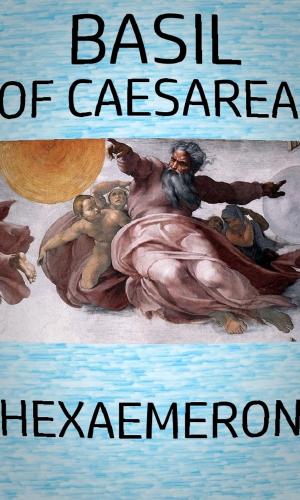Against the Pagans
Nonfiction, Religion & Spirituality, Christianity, Christian Sermons, Christian Life| Author: | Arnobius of Sicca | ISBN: | 9781783362042 |
| Publisher: | limovia.net | Publication: | April 21, 2013 |
| Imprint: | Language: | Italian |
| Author: | Arnobius of Sicca |
| ISBN: | 9781783362042 |
| Publisher: | limovia.net |
| Publication: | April 21, 2013 |
| Imprint: | |
| Language: | Italian |
Against the Pagans was composed in response to Diocletian's persecution of Christians, and was a rebuttal to Pagan arguments why the persecution was justifiable. The book we have shows little sign of having been revised by a Christian bishop and is all the better for giving an unvarnished view of the opinions of an enthusiastic recent convert. Arnobius, "a practitioner of the coarse and turgid style that is called African", is a vigorous apologist for the Christian faith, more earnest in his defence of Christianity than perfectly orthodox in his tenets. His book has been occasioned by complaints that the Christians had brought the wrath of the gods on Ancient Rome. Thus, he holds the heathen gods to be real beings, but subordinate to the supreme Christian God; in a streak of gnosticism, he affirms that the human soul (Book II, 14 - 62) is not the work of God, but of an intermediate being, and is not immortal by nature, but capable of putting on immortality as a grace. Never specifically identifying his pagan adversaries, some of whom may be straw men, set up to be demolished, Arnobius defends and expounds the rightness of monotheism and Christianity (deus princeps, deus summus) and the divinity of Christ, by adducing its rapid diffusion, its influence in civilizing barbarians and its consonance with the best philosophy. Christianizing Plato, he refutes pagan idolatry as filled with contradictions and openly immoral, and to demonstrate this point, his Books III through V abound with curious information gathered from reliable sources (e.g. Cornelius Labeo) concerning the forms of idolatrous worship, temples, idols, and the Graeco-Roman cult practice of his time, to the historian and mythographer's cautious delight, but all held up by Arnobius for Christian ridicule.
Adversus nationes survived in a single ninth-century manuscript in Paris (and a bad copy of it in Brussels)
Against the Pagans was composed in response to Diocletian's persecution of Christians, and was a rebuttal to Pagan arguments why the persecution was justifiable. The book we have shows little sign of having been revised by a Christian bishop and is all the better for giving an unvarnished view of the opinions of an enthusiastic recent convert. Arnobius, "a practitioner of the coarse and turgid style that is called African", is a vigorous apologist for the Christian faith, more earnest in his defence of Christianity than perfectly orthodox in his tenets. His book has been occasioned by complaints that the Christians had brought the wrath of the gods on Ancient Rome. Thus, he holds the heathen gods to be real beings, but subordinate to the supreme Christian God; in a streak of gnosticism, he affirms that the human soul (Book II, 14 - 62) is not the work of God, but of an intermediate being, and is not immortal by nature, but capable of putting on immortality as a grace. Never specifically identifying his pagan adversaries, some of whom may be straw men, set up to be demolished, Arnobius defends and expounds the rightness of monotheism and Christianity (deus princeps, deus summus) and the divinity of Christ, by adducing its rapid diffusion, its influence in civilizing barbarians and its consonance with the best philosophy. Christianizing Plato, he refutes pagan idolatry as filled with contradictions and openly immoral, and to demonstrate this point, his Books III through V abound with curious information gathered from reliable sources (e.g. Cornelius Labeo) concerning the forms of idolatrous worship, temples, idols, and the Graeco-Roman cult practice of his time, to the historian and mythographer's cautious delight, but all held up by Arnobius for Christian ridicule.
Adversus nationes survived in a single ninth-century manuscript in Paris (and a bad copy of it in Brussels)















